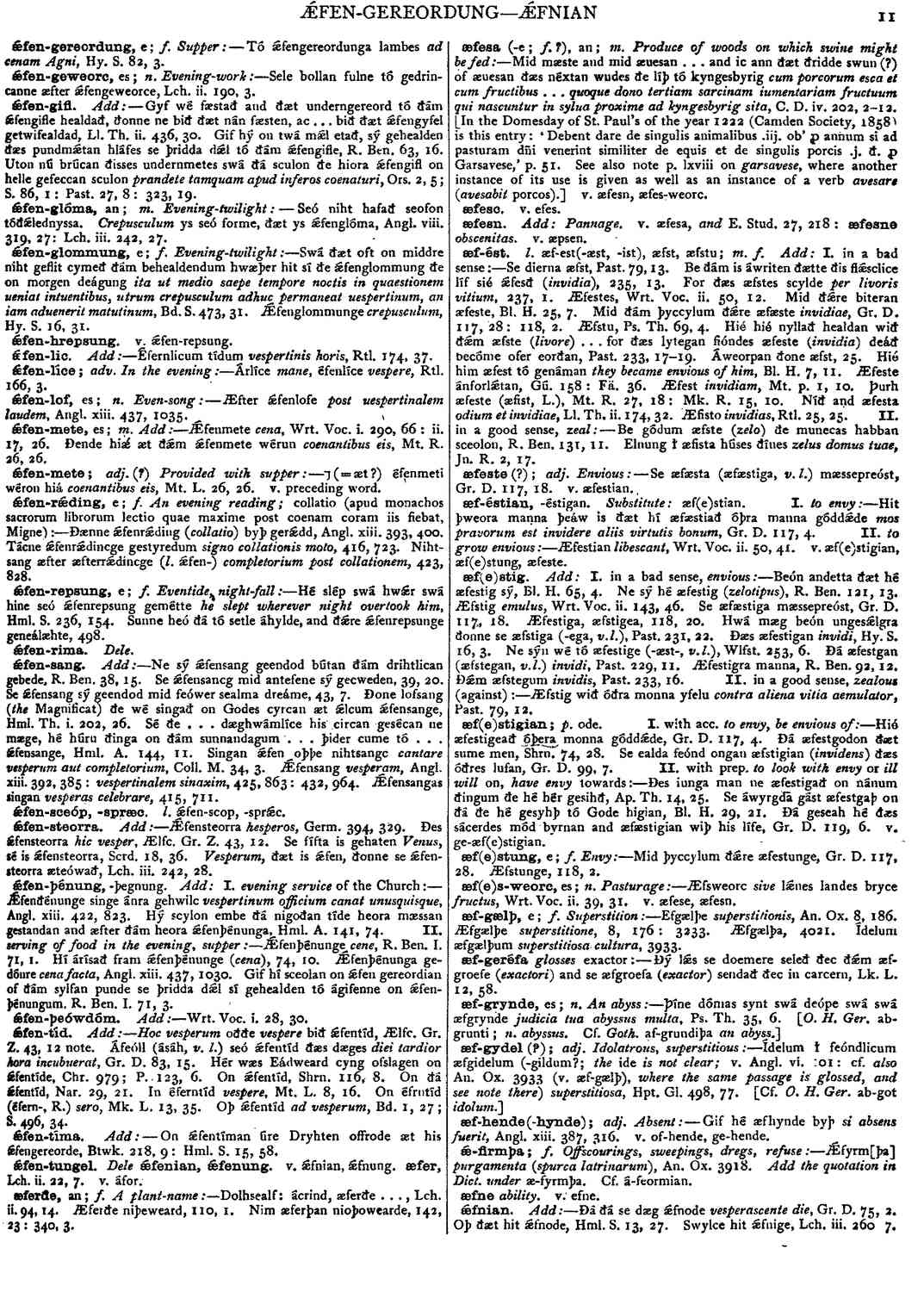æf-ést
- noun [ masculine ]
- Se dierna æfst. Past. 79, 13.
-
Be ðám is áwriten ðætte ðis fiǽsclice líf sié ǽfesð (
invidia
),- 235, 13.
-
For ðæs æfstes scylde
per livoris vitium
,- 237, i. Æfestes, Wrt. Voc. ii. 50, 12.
-
Mid ðǽre biteran æfeste,
- Bl. H. 25, 7.
-
Mid ðám þyccylum ðǽre æfæste
invidiae
,- Gr. D. 117, 28: 118, 2.
-
Æfstu,
- Ps. Th. 69, 4.
-
Hié hié nyllað healdan wið ðǽm æfste (
livore) . . . for ðæs lytegan fióndes æfeste (invidia )
deáð becóme ofer eorðan,- Past. 233, 17-19.
- Áweorpan ðone æfst, 25.
-
Hié him æfest tó genáman
they became envious of him
,- Bl. H. 7, ll. Æfeste ánforlǽtan, Gú. 158 : Fä. 36.
-
Æfest
invidiam
,- Mt. p. I, 10.
-
Þurh æfeste (æfist,
- L.), Mt. R. 27, 18 : Mk. R. 15, 10.
-
Níð and æfesta
odium et invidiae
,- Ll. Th. ii. 174, 32.
-
Æfisto
invidias
,- Rtl. 25, 25.
-
Be gódum æfste (zelo) ðe munecas habban sceolon, R. Ben. 131, II. Elnung ł æfista húses ðines
zelus domus tuae
,- Jn. R. 2, 17.
Bosworth, Joseph. “æf-ést.” In An Anglo-Saxon Dictionary Online, edited by Thomas Northcote Toller, Christ Sean, and Ondřej Tichy. Prague: Faculty of Arts, Charles University, 2014. https://bosworthtoller.com/37644.
Checked: 0